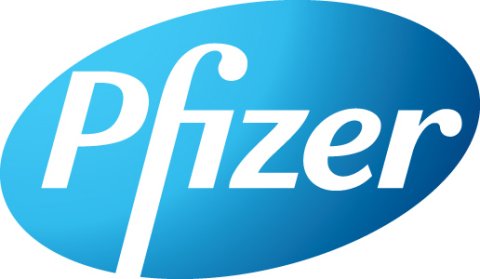Pfizer Inc and BioNTech could secure emergency U.S. and European authorization for their COVID-19 vaccine next month after the final trial results showed it had a 95% success rate and no serious side effects, the drugmakers said on Wednesday.
Pfizer Inc and BioNTech could secure emergency U.S. and European authorization for their COVID-19 vaccine next month after the ultimate trial results showed it had a 95% success rate and no serious side effects, the drugmakers said on Wednesday.
The efficiency of the shot was found to be reliable among different age groups and ethnicities and a promising sign is given the disease has excessively affected the elderly.
BioNTech Chief Executive Ugur Sahin told Reuters TV, The U.S. Food and Drug Administration could grant emergency-use approval towards the top of the primary half December or early within the last half.
The European Union may secure a conditional approval in the second half of December, he added.
“If all goes well, I could imagine that we gain approval in the second of December and begin deliveries before Christmas. However, it all depends on if everything goes well.” he said.
About 170 volunteers are going to involve over 43,000 people who contracted COVID-19 but among them 162 of them had only been given a placebo, meaning the vaccine was 95% effective, said Pfizer.
One had received the vaccine of among 10 people, who had severe COVID-19.
Experts said it was a significant achievement in the race to end the pandemic while the success rate of the vaccine developed by US firm Pfizer and Germany’s BioNTech which is the highest of any candidates in late-stage clinical trials so far.
“A first within the history of mankind: but a year from the sequence of the virus to the large-scale clinical test of a vaccine, moreover supported an entire new technique,” said Enrico Bucci, a biologist at Temple University in Philadelphia. “Today is a special day.”
BioNTech’s Sahin said the U.S. emergency authorization would be applied for on Friday.
The FDA committee tentatively plans to satisfy on Dec. 8-10, a source conversant in things said, though the dates could still change. The FDA didn’t answer requests for comment.
COVID-19 RUNS RAMPANT
The initial results showed the vaccine was more than 90% effective in the final trial analysis. Moderna Inc released first round of data for its vaccine on Monday, showing 94.5% effectiveness.
Both the vaccines are developed with a new messenger called RNA (mRNA) technology, and this has raised hopes for the end of the pandemic that has killed more than 1.3 million people and wreaked havoc upon economies and lifestyle.
YOU MAY LIKE TO READ: Indian Experts Hail ‘Promising’ mRNA Vaccine For Covid-19 Treatment
As the Pfizer-BioNTech shot was found to be 94% efficient in people over 65 years, experts said it was crucial at a time when COVID-19 is running rampant around the world with the growing numbers of new cases and hospitalizations.
“This is the evidence we needed to ensure that the most vulnerable people are protected,” said Andrew Hill, senior visiting research fellow at the University of Liverpool’s department of pharmacology.
Investors have treated vaccine development as a race between companies, although there’s likely to be global demand for the maximum amount of vaccine as are often produced for the foreseeable future.
DISTRIBUTING SHOTS
Pfizer says it expects to form as many as 50 million vaccine doses this year, enough to guard 25 million people, then produce up to 1.3 billion doses in 2021.
While some groups like healthcare workers are going to be prioritized within the US and Britain for vaccinations this year, it’ll be months before large-scale rollouts begin in either country.
Pfizer also has agreements with the European Union, Germany and Japan where distribution could begin next year.
Distribution of a Pfizer-BioNTech shot is complicated by the necessity to store it at ultra-cold temperatures of -70 degrees Celsius. It can, however, be kept during a normal fridge for up to 5 days, or up to fifteen days during a thermal shipping box.
Moderna’s vaccine are often stored for up to 6 months at -20C though it’s expected to be stable for 30 days at normal fridge temperatures of two to eight degrees Celsius (36°-46°F).
FATIGUE AND HEADACHES
Pfizer said its two-dose vaccine, called BNT162b2, was well-tolerated with side effects limited to mild to moderate, and cleared up quickly.
It said the sole severe adverse events experienced by volunteers were fatigue and headaches. Out of 8,000 participants, 2% had headaches after the second dose, while 3.8% experienced fatigue. Older adults reported fewer and milder adverse events.
“These are extraordinary results, and therefore the safety data look good,” said David Spiegelhalter, a professor and expert in risk and evidence communication at the University of Cambridge.
Of the handfuls of drugmakers and research groups racing to develop vaccines against COVID-19, subsequent data release will likely to be from AstraZeneca Plc with the University of Oxford in November or December. Johnson & Johnson says it is on track to deliver data this year.
Authorization of vaccines for children will take longer. Only Pfizer has started vaccinating volunteers under the age of 18 in trials, giving shots to children as young as 12. Moderna and Johnson & Johnson have said they hope to start testing the vaccine in younger patients soon.







